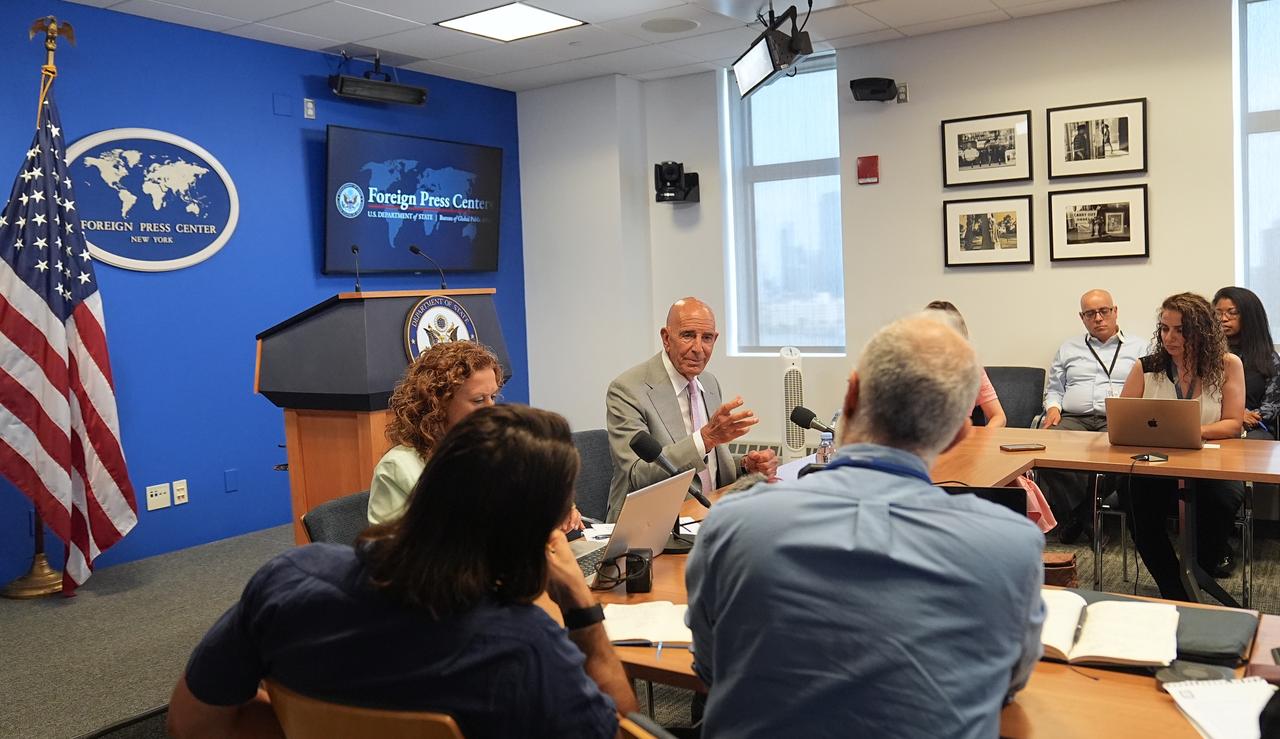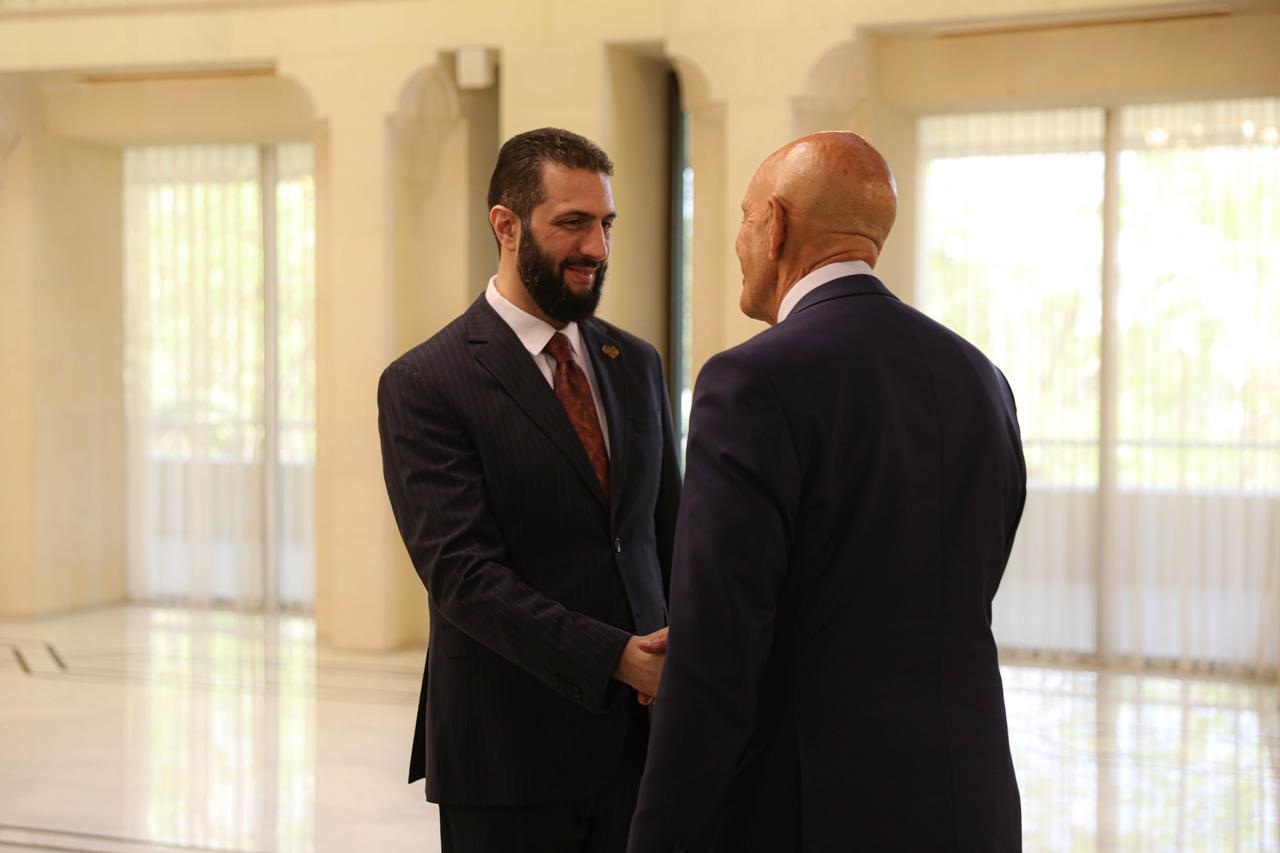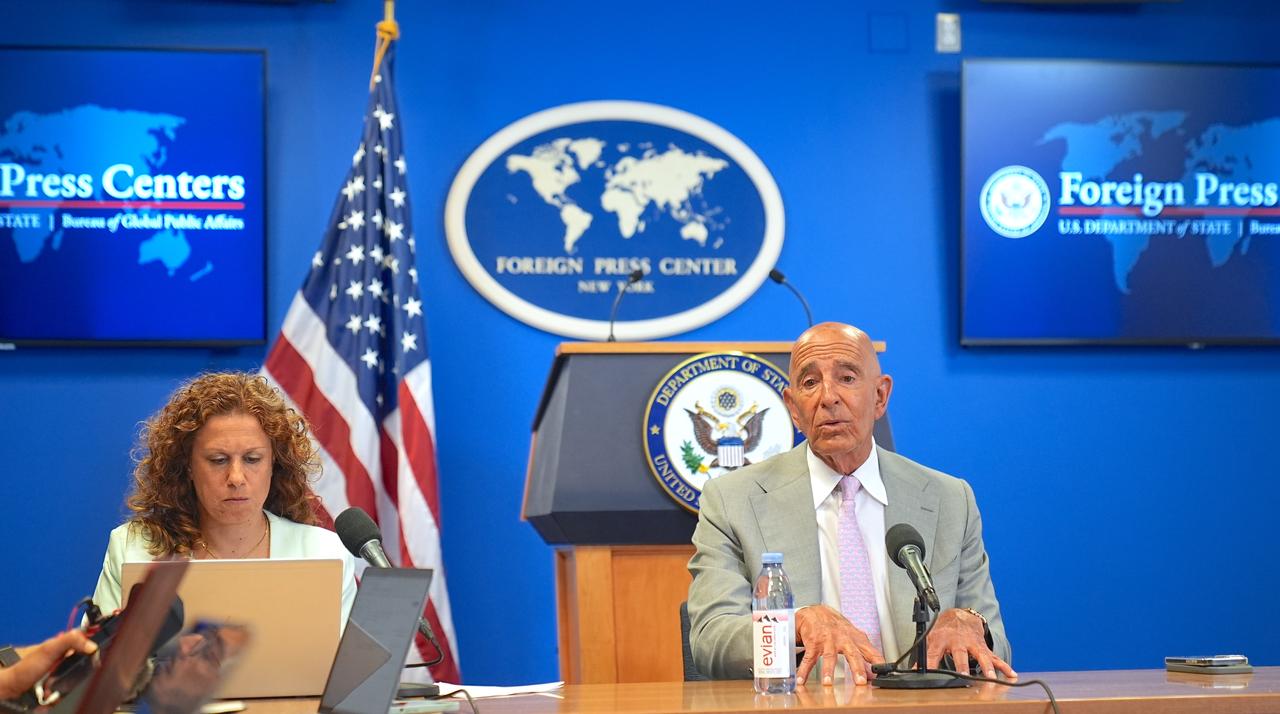U.S. Ambassador to Türkiye and Special Envoy for Syria Tom Barrack on Friday said Washington does not support the creation of an independent Syrian Democratic Forces (SDF) state or a so-called "free Kurdistan" in Syria, reaffirming that the SDF is led by the YPG, which he described as a derivative of the PKK terrorist group.
“SDF is YPG. YPG is a derivative of the PKK,” Barrack told reporters during a press briefing at the Foreign Press Center in New York. “YPG was a spin-off of PKK that we allied with to fight ISIS (Daesh),” he said.
“There’s a big sentiment that, because they were our partners, we owe them. The question is, what do we owe them? We don’t owe them the ability to have their own independent government within a government,” Barrack added.
“There’s no indication there’s going to be a free Kurdistan, no indication of a separate SDF state. There’s Syria,” he said.
Barrack said the U.S. supports a unified Syria and dismissed federalist or separatist models, calling them unrealistic.
“You can’t have a separate Druze force dressed like Druze, a separate Alawite force dressed like Alawites, a separate Kurd force dressed like Kurds, and on and on. There’s going to be one entity,” he said.

While encouraging continued dialogue between factions in Syria, Barrack said the U.S. will not maintain an indefinite presence in the country.
“We’ll bring you together, we’ll arbitrate, we’ll mediate, we’ll help—but we’re not going to stick around forever,” he said. “If you don’t agree, fine—but we won’t be your babysitter.”
The Turkish government has long maintained that the SDF is dominated by the YPG, which it considers the Syrian arm of the PKK—a group designated a terrorist organization by Türkiye, the U.S., and the EU.
While successive U.S. administrations have viewed the SDF as a key ally in the fight against Daesh, the group's affiliation with the YPG has been a consistent point of contention in U.S.-Türkiye relations.

Meanwhile, commenting on the PKK terror group's disarmament ceremony on Friday, Barrack said: “This is a very big development for Türkiye.”
A group of 30 PKK members, including 15 women, laid down their weapons in northern Iraq’s Sulaymaniyah province, tossing them into a burning cauldron in a ceremony witnessed by journalists and observers.
The move followed a May announcement that the group would dissolve and disarm, a decision prompted by a February call from jailed PKK ringleader Abdullah Ocalan. In his statement, Ocalan urged the group and its affiliates to end their four-decade armed campaign.

The PKK — designated a terrorist organization by Türkiye, the United States, and the European Union — has been responsible for the deaths of more than 40,000 people, including women, children, and the elderly. YPG is PKK's offshoot in Syria.
Barrack also praised Türkiye’s strategic role in global affairs, highlighting its influence in conflicts from Ukraine to the Middle East.
“I’m extremely proud of the role Türkiye has played,” he said. “They have been pivotal. President Erdogan, Foreign Minister Hakan Fidan, National Intelligence Organization head Ibrahim Kalin—all of them have acted on behalf of regional diplomacy.”
He cited Türkiye’s unique relationships with both Western and regional powers, saying Ankara has been “incredibly helpful” to Washington on issues involving Ukraine, Russia, Gaza, and Israel.

On defense ties, Barrack pointed to Türkiye’s response to U.S. sanctions as a turning point in its defense sector development.
“When the CAATSA sanctions hit, Türkiye—being smart and industrious—started manufacturing its own drones and jets. The Bayraktar TB2s, probably the best drones in the world, are being used in Ukraine,” he said.
Addressing Türkiye’s removal from the F-35 fighter jet program over its acquisition of Russian S-400 missile systems, Barrack acknowledged the complicated history.
“This has been a long story, almost a decade in the making. Where does it end? With negotiations and discussions about how we can turn back the clock,” he said.
Barrack emphasized that restoring Türkiye’s role in the F-35 program would require congressional approval and would have to be addressed separately from CAATSA sanctions.
“These discussions are ongoing simultaneously with all the others,” he added.
Reflecting on bilateral relations, Barrack said: “President Trump and President Erdogan have done a fantastic job of clawing back at each other and redefining the relationship that had been left empty. During the Biden and Obama administrations, Türkiye didn’t feel loved—and they weren’t.”